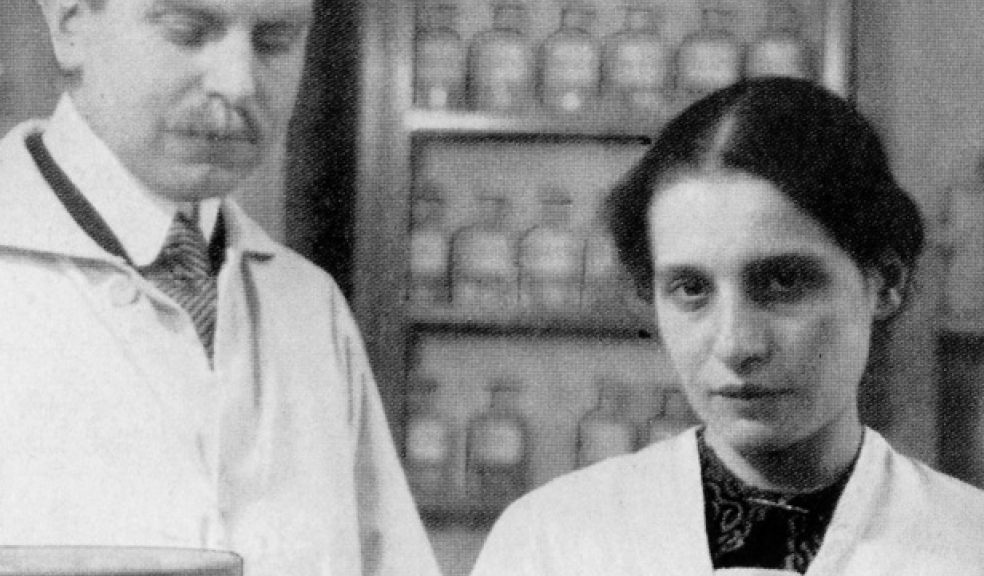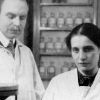
Atomic arts project targets teenage scientists
Following the success of its explosive Science Cabaret production “Dark Matters”, the science focused theatre company Foot-candle Productions - supported by Daisi[1] and Queen Elizabeth’s (QE) Academy - is putting the spotlight on one of science’s unsung feminine heroes, the ground breaking Austrian atomic Physicist Lise Meitner, whose work changed the world.
The new work, a day long experience to be run in schools, has been created to encourage more young women across the UK to consider Physics A-level.
Supported by £30,000 awarded by several arts and science based funding bodies[2] the troupe has created an immersive educational experience for schools, culminating in a production of a newly written play “The Lise Meitner Story” by Devon-based playwright Vince Miles and a plenary session.
The experience has been designed to fall within usual school hours and will run parallel to the national curriculum. A total of 30 young people will be selected to take part in each day, including sixth form students and others from years 9 – 11. At least 50% will be girls.
Foot-candle Productions will be running the day at two schools during October 2016. The first will be at QE Academy – which has been integral to the success of the project – on 6 October, and the second will take place on 11 October, Ada Lovelace Day (a day recognizing women’s vital role in the promotion of the sciences) at Sidmouth College.
Both days will involve participatory workshops to explore Lise’s extraordinary life and work. This will be brought to life in “The Lise Meitner Story”, performed by Belinda Chapman, Josiah Pearsall and Tony Lidington in a school science lab.
Meitner’s story is a vivid one. Born in Austria in 1878, she was a physicist all her adult life, working with the best scientists of the day and at the cutting edge of atomic physics and nuclear fission (Albert Einstein called her “our Marie Curie”). However, born a Jew, the rise of Hitler’s Germany was to change the course of Lise’s life, as she fled her homeland and career at the age of 60. She continued her work in her adopted homeland of Sweden, but her brilliance was never truly recognized during her lifetime, and the fact she never won the Nobel Prize for physics (despite many members of her team, including Otto Hahn, winning the for the same work) is a considered a great injustice. Lise died in England in 1968 (in her later years she taught at Cambridge), and is buried in Hampshire. Her story, despite her huge influence in the field of atomic physics, remains largely unknown
John Teasdale, co- founder of Foot-candle Productions and Maths teacher at QE is leading on the content for the Meitner days.
“I am indeed Maths teacher and a graduate of physics, but I am also a father of three daughters and a brother to four sisters. If anyone should be aware of female role models in Maths and science it is me. But, until two years ago, I only had a shadowy knowledge of the work of Lise Meitner, and was certainly unaware of the profound impact she has had on the world we live in today. So, through Foot-candle and my work at QE, I am honoured give Lise the spotlight she deserves and use her story to inspire young women to consider physics at A-level and beyond.
“I am looking forward to the challenge of communicating the thrill of understanding Meitner’s use of e=mc2. The morning workshop activities will introduce the mathematical and physics background to nuclear fission and present the main scientists whose work contributed to the discovery that Meitner ultimately made.
“I also want to showcase that this is not ‘historical science’ – Meitner’s work is put to use across the world every day. Indeed, the recent green light for the nuclear power plant at Hinkley Point means we will be seeing the results of her work on our own doorstep in the not too distant future. The timing could not be better for us, and we will be exploring this, and the need for more female scientists in the UK to work at facilities like Hinkley, during our workshops.”
QE has an enviable track record in Maths and Science teaching, and Head of Physics Nick Baker has been a keen supporter of the project:
“We are always looking for new ways to challenge and inspire our students, and this project, which focuses on a single woman’s incredible journey through the scientific discoveries of the early twentieth century, will do just that. It’s an excellent way to learn about the interconnectivity of science in a way which will inspire all young people.”
Dr Helen Heath of Bristol University and experimentalist at CERN, and scientific adviser for this project adds: “I am delighted to be involved in this Foot-Candle initiative. There are many great unsung female scientists so it’s great to see Lise Meitner and her work coming to public attention in this way.”
Rae Hoole of Foot-candle Productions and project coordinator, said: “This project is an innovative and enterprising way of encouraging young girls to take a leap of faith and consider a career in Physics which could enable them to go on to make a contribution to resolving Britain’s growing energy supply problems in a post fossil fuel era.
“Our future is dependent on engaging our children in science, and how wonderful would it be if Lise’s story meant a British woman spearheads future scientific discovery. It is no accident that we are running our day on Ada Lovelace Day – the light she has cast across women in science is powerful and will give further glow to our own tale.
“Our ultimate goal is to roll out the Lise Meitner immersion day to schools across the UK, but to do this we need more funding. With the thanks to the evaluation metrics being put in place by Daisi, we will have the evidence we need to apply for the backing required to take this idea to the next level.”
[1] Daisi is the Arts Education Partnership organisation for Devon and Torbay
[1] The Babcock Education Fund. Institute of Physics public engagement fund. Science and Technology Facilities Council.














